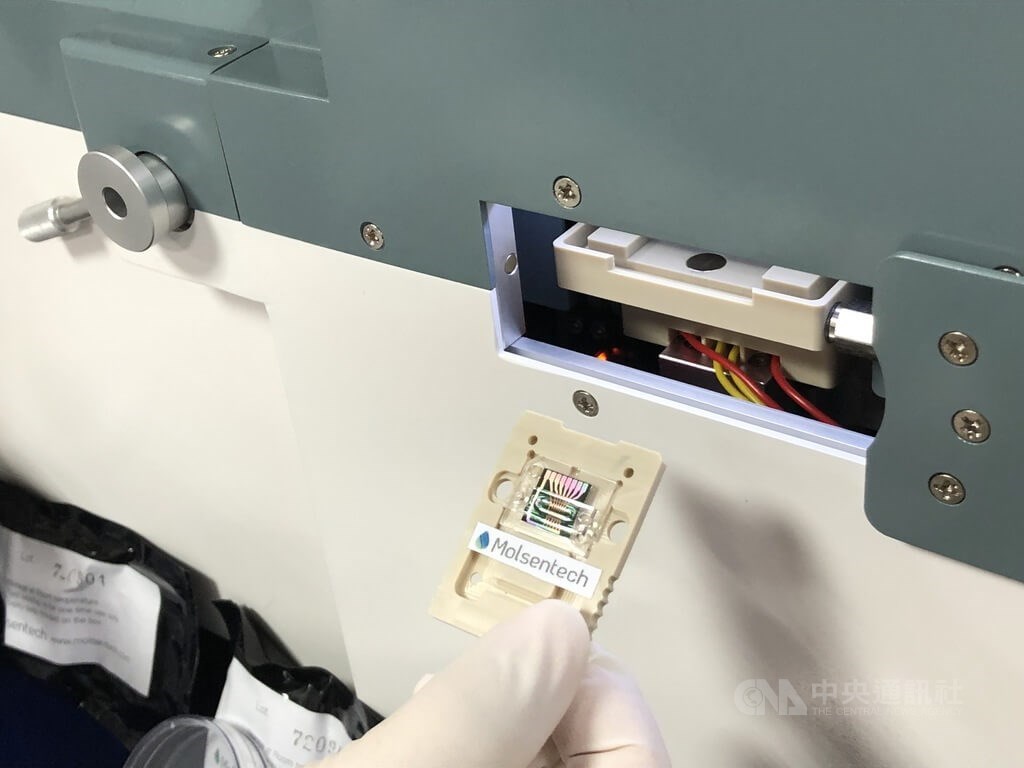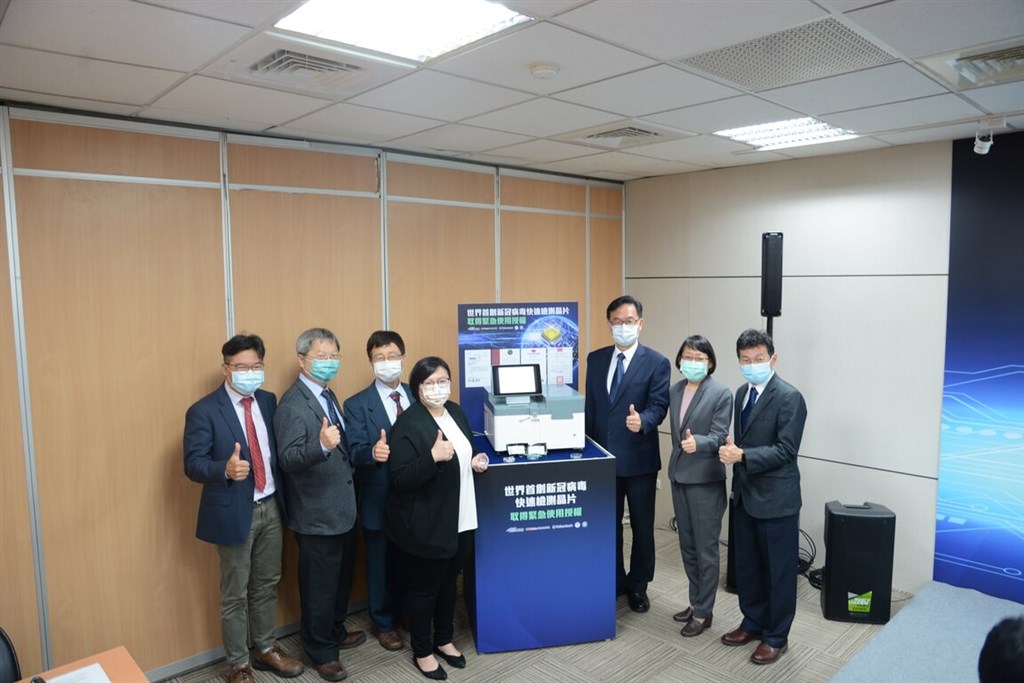A collaboration project led by Taiwan's Ministry of Science and Technology (MOST) has produced a new chip device that is capable of detecting COVID-19 cases with a very low viral load, as well as those who are asymptomatic, in three minutes.
The rapid testing chip received an Emergency Use Authorization (EUA) from Taiwan's Food and Drug Administration (TFDA) at the end of 2021, following the completion of clinical trials on 142 cases at Kaohsiung Veterans General Hospital (KSVGH), MOST said at a press conference held Tuesday.
The ministry added that the innovative semiconductor product is expected to go to market as soon as February, with planned EUA applications in the United States and Japan in the works.
During the press event, it was revealed that MOST had funded the project between Academia Sinica, the National Applied Research Laboratories (NARLabs), and Taipei-based Molecular Sensoring Technology Co., Ltd. (Molsentech).
According to the NARLabs, there are currently two kinds of rapid tests -- antibody and antigen -- for SARS-CoV-2, the virus that causes COVID-19, and a polymerase chain reaction (PCR) test available on the market.
Though the rapid tests yield results in 15 minutes, the tests can sometimes provide false negatives and positives, while polymerase chain reaction (PCR) tests take at least 90 minutes to reveal a result even though these are more accurate as they examine cycle threshold (CT) values, NARLabs explained.
KSVGH vice superintendent Chen Yao-sheng (陳垚生) said at the news event that the results of clinical trials with the new computer chip in COVID-19 rapid testing indicated the device had a 96.8-percent accuracy rate in sensitivity and a 95.1-percent rate in specificity.
Moreover, the chip was 100-percent consistent in identifying COVID-19 positive samples with a CT value below 35, Chen said.
In other words, the chip can detect the virus when the viral load is very low and in the incubation period, Chen said, noting that this feature can help epidemic control significantly.
The chip device was developed based on the field-effect transistor biosensor (Bio-FET) developed by Academia Sinica's Quantum Electronics Laboratory, according to Molsentech.

The company applied the ultra-high sensitivity biomedical detection technology to COVID-19 testing with the support of NARLab's Taiwan Instrument Research Institute in regulatory certification to create the computer chip.
According to Molsentech CEO Chu Chia-jung (褚家容), the chip has more than 10,000 testing points, which means it has a super high sensitivity so the process of amplifying nucleic acid is no longer needed.
As a result, the device has a 95-percent accuracy rate in testing samples taken from the nose and throat, Chu said, adding that the company is looking to improve it to the point where saliva samples could replace the current nasal swabs.
The CEO also said while the device was developed using older strains of the virus, it is still capable of detecting the Delta and Omicron variants. Moreover, the chip can be adjusted within a week to enable it to detect new variants, he added.
The cost of a COVID-19 test using the chip device is between that for PCR and rapid testing, being currently priced at NT$3,000 (US$107.74) per person, said Chu.

The company hopes the device can be introduced to the market as soon as possible through the government's epidemic control program so that people can benefit from the new tech, Chu said.
No comments:
Post a Comment
Note: Only a member of this blog may post a comment.